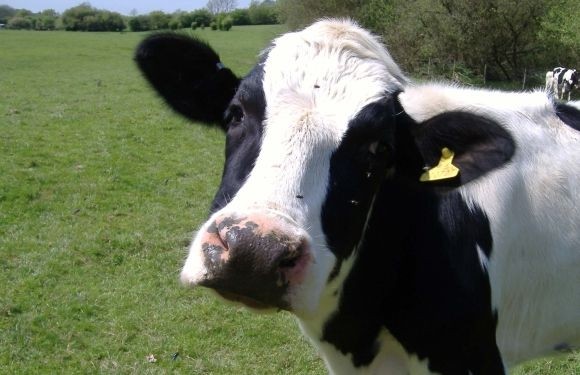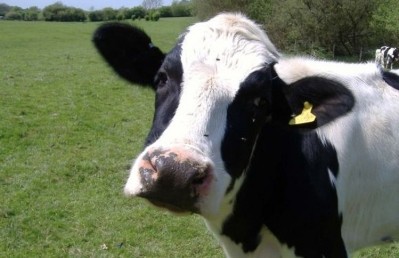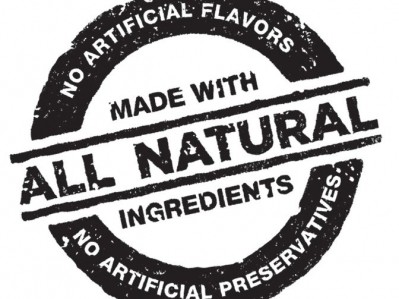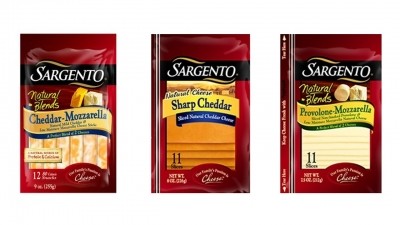Dannon attacks ‘daisy-chained’ logic in all-natural lawsuit over GM feed and dairy products

In a complaint against Dannon* filed last October, plaintiff Polly Podpeskar alleged that reasonable consumers would not expect yogurts labeled ‘all-natural’ to use milk from cows likely fed genetically engineered feed.
To support her claims, Podpeskar cited a 2015 Consumer Reports survey suggesting that 81% of US consumers believe a ‘natural’ label on meat or poultry products should mean that the animals’ feed contained no GMOs.
She added: “Reasonable consumers believe that if a cow consumes GMO grass, corn, or soy and then produces milk, the milk is not all natural, and products derived from the milk, such as yogurt, are likewise not all natural.”
Dannon: This daisy-chained, twice ‘derived’ allegation is unsupported
In an April 10 motion to dismiss the case, however, Dannon (now part of DanoneWave) argued that the case should be dismissed because no reasonable consumer would follow Podpeskar logic.
It added: “This daisy-chained, twice ‘derived’ allegation is unsupported by any authority and must fail. Plaintiff does not allege how any purportedly ‘unnatural’ characteristic moves through the supply chain from the feed, to the cows, to the milk, to the products, or articulate how a reasonable consumer would be misled. The mere consumption of genetically modified food simply cannot affect the genetic makeup of the organism consuming it.”
Moreover, the logic deployed in the lawsuit “has not been adopted by the FDA and has been rejected by both courts and Congress,” argued Dannon, which also noted that federal GMO labeling legislation signed into law last year by President Obama does not extend GMO labeling to products made from milk or meat from animals fed GM feed.
Where does the law stand on 'natural' claims and GMOs?
While new federal GMO labeling legislation (the details of which are being thrashed out by USDA ) will not require GMO labeling on milk or meat from animals fed GM feed, it does not make any reference to whether you can call such products ‘natural’ or ‘all-natural.’
In the absence of a concrete legal definition of ‘natural,’ meanwhile, marketers have historically relied on non-binding FDA guidance from the early 1990s saying natural means that “nothing artificial or synthetic (including all color additives regardless of source) has been included in, or has been added to, a food that would not normally be expected to be in the food”.
However, things changed in late 2015 when the FDA surprised many stakeholders by announcing a probe into what ‘natural’ should mean on a food label, prompting a deluge of feedback. The comment period is now closed, and the agency has not said when it plans to report back.
Dannon: If the court does not dismiss this case, it should stay it on primary jurisdiction grounds
Meanwhile, the judge handling a similar false advertising lawsuit about ‘non-GMO’ claims on dairy products fed GM feed (Gallagher v. Chipotle Mexican Grill) “flatly rejected a claim similar to plaintiff’s,” at the pleading stage, observed Dannon.
It also noted that the FDA’s 1991 guidance on ‘natural’ claims states only that ‘natural’ means “nothing artificial or synthetic . . . is included in, or has been added to, the product that would not normally be expected to be there,” and makes no reference to animal feed, GMOs or production methods.
And crucially, said Dannon, the FDA is actively looking into the definition of ‘natural’ claims (click HERE) as we speak, which means this case should stayed on primary jurisdiction grounds until that process is completed.
“If this court does not dismiss this case, it should defer to the FDA’s expertise and order a stay under the doctrine of primary jurisdiction, as the vast majority of courts faced with such challenges have done.”
Should natural mean non-GMO?
The FDA’s probe into ‘natural’ has prompted a lot of soul searching in the industry over where GMOs fit in.
The Organic Trade Association argues that products made from GE ingredients should not be described as 'natural,' while the Natural Products Association says foods derived from biotech crops should qualify for a 'natural' label on the grounds that, "If 'natural' became synonymous with non-GMO, there would be no difference between the terms 'natural' and 'organic' [the latter is non-GMO by definition].”
How far up the supply chain should we go?
The issue of how far up the supply chain GMO labeling and natural labeling should extend – ie. should it extend to processing aids or animal feed? - is the topic of intense debate.
For example, the federal GMO labeling law will not require GMO labeling on milk or meat from animals fed GM feed.
However, the Non GMO Project takes a different view (see FAQ #5), and says the use of genetic engineering at any stage of the production process disqualifies products from using its Non-GMO Project verified seal, regardless of what’s in the final product.
To make matters more complicated, while the new GMO labeling law defines ‘bioengineered,’ it does not define Non-bioengineered, or non-GMO, with lawmakers telling FoodNavigator-USA last August that we should not assume that any product that does NOT meet the definition of ‘bioengineered’ can necessarily be marketed as ‘Non-GMO.’
*The case is Polly Podpeskar v Dannon Company Inc, 7:16-cv-08478 filed in the southern district of New York on October 31, 2016.
When will the FDA define 'natural'? And should 'natural' lawsuits be stayed while we wait?
The FDA unveiled a probe into 'natural' claims in 2015, but has said nothing since about when - or if - it plans to come up with a clear legal definition.
So what does this mean for food brands, which are still being sued over 'natural' claims?
Ryan Kaiser, partner at Amin Talati Upadhye, told FoodNavigator-USA: "I haven’t seen anything recently... that would suggest the FDA is going to make a determination [on what 'natural' means] any time soon. To me, that lack of direction (and a clear timeline for guidance) would suggest that courts will become less and less likely to stay these 'natural' cases."
"I think generally the court needs to be convinced that a particular issue is one that an agency is going to take up and decide imminently. If the issue isn’t something that's clearly 'on the table' and set for a decision very soon, I think many courts are leaning away from staying cases. Courts don’t generally like to have cases languishing on their dockets for years."
Another source told FoodNavigator-USA: "Based on informal comments from FDA staff, I would expect the FDA to take action at some point, but it could be years from now. Defense attorneys will argue that the FDA’s timing should not affect the agency’s primary jurisdiction, but of course it could still influence the courts."

























